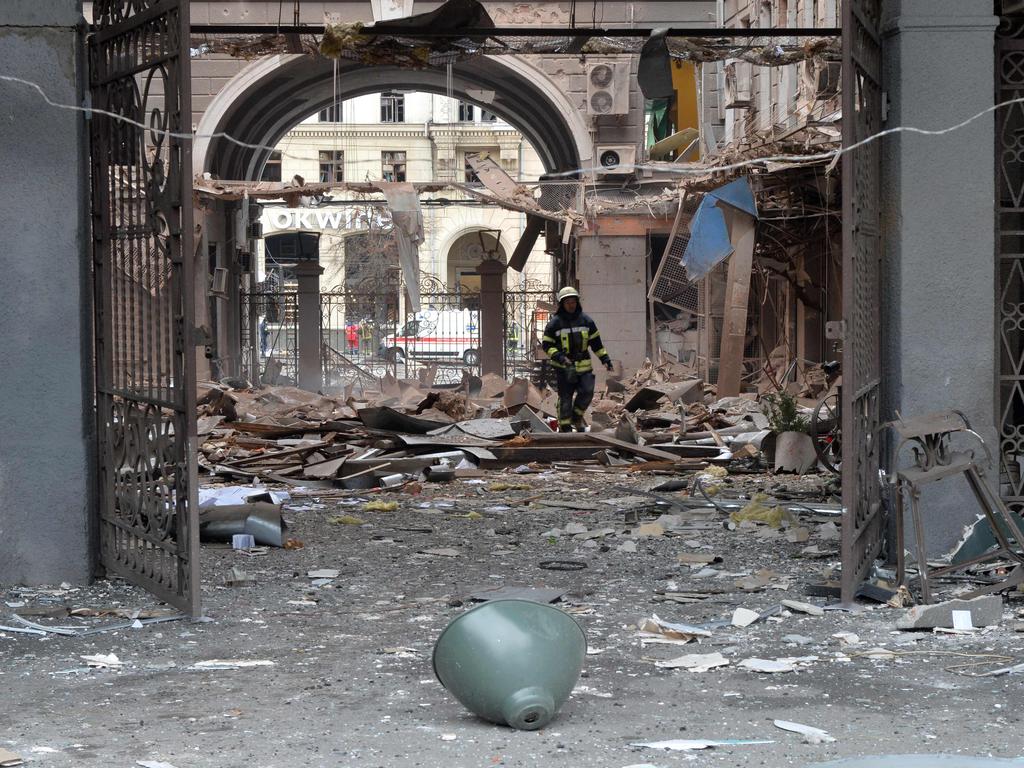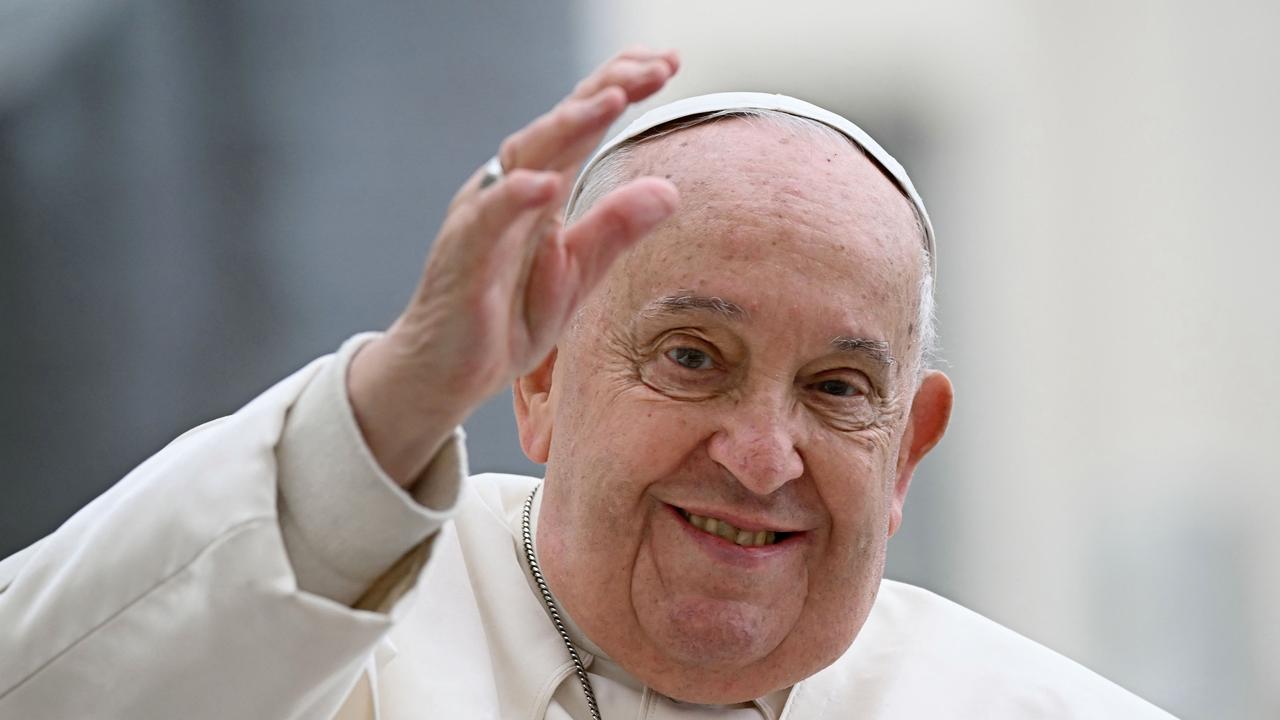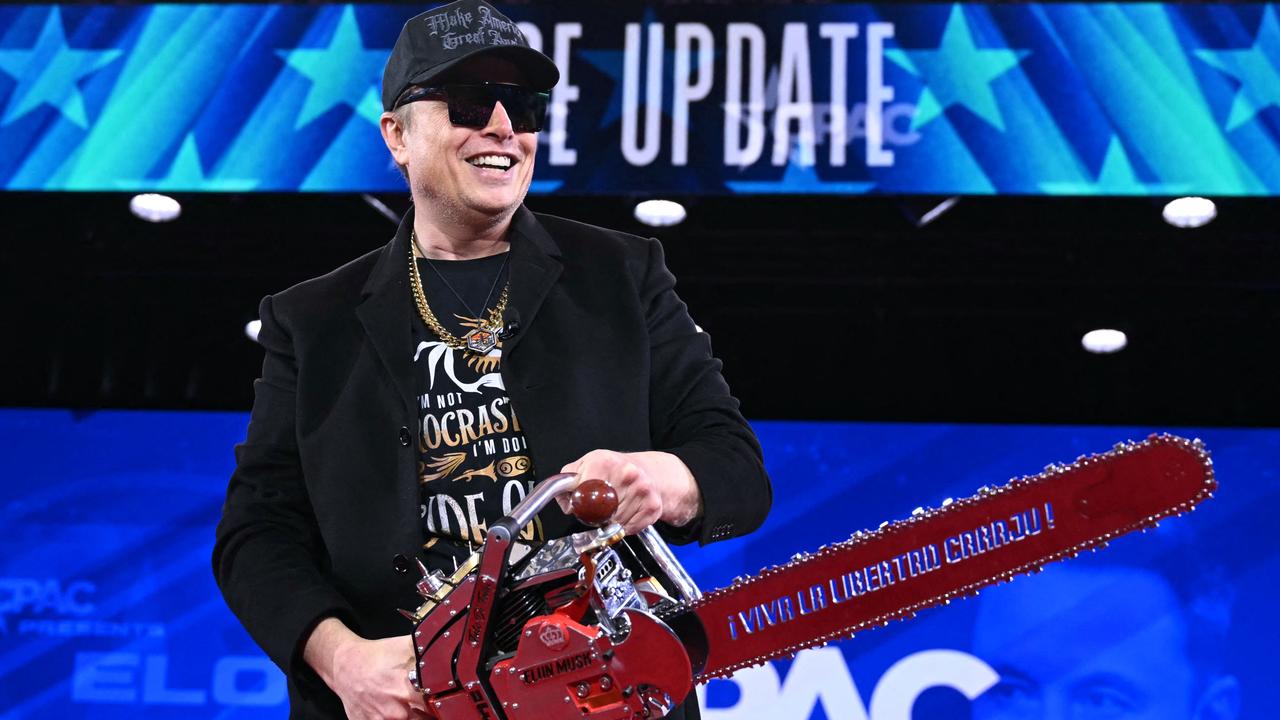Spectre of nuclear disaster after Russians seize Ukraine power plant
Ukraine has accused Russia of ‘nuclear terrorism’ after troops fired on, and took control of, the largest reactor in Europe.
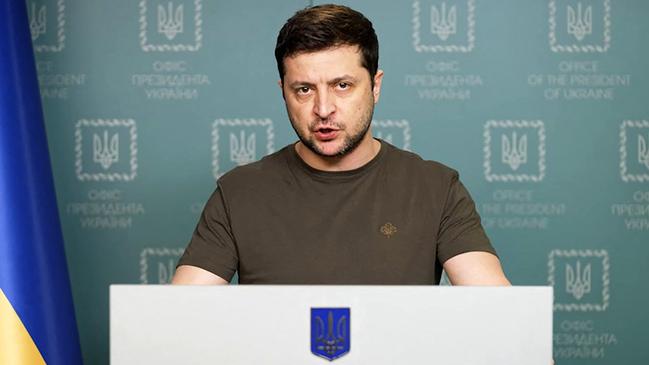
Russia has taken control of the largest nuclear power plant in Europe, sparking global concerns after a blaze at a nearby training building raised the spectre of a nuclear catastrophe.
Ukraine’s nuclear authority warned that the cooling down of four units at the Zaporizhzhia nuclear plant in the south of the country remained essential to avert the world’s worst nuclear disaster.
Any interruption to the cooldown procedures would result in “significant radiation releases that exceed Chernobyl and the Fukushima” disasters, the nuclear regulator said.
Ukrainian President Volodymyr Zelensky warned that an explosion at the site would represent “the end of Europe”, accusing Moscow of resorting to “nuclear terror” to advance its military campaign.
He pleaded for greater support from the West to counter the Russian military offensive and spoke to US President Joe Biden and British Prime Minister Boris Johnson.
In a televised address Mr Zelensky said the attack, which was on “an unheard-of level” could have caused destruction equal to “six Chernobyls”.
Addressing Russian people he said: “How is this even possible? Didn’t we fight the consequences of the Chernobyl catastrophe together in 1986?”
He urged them to “take to the streets and tell your government that you want to live”.
While Ukrainian officials said radiation had not yet leaked from the plant in Energodar, they confirmed the site had been “captured by military forces of the Russian Federation” after a second round of peace talks in Belarus failed to make progress in achieving an overall ceasefire.
As Russia extended its push into southern Ukraine, negotiators agreed on the establishment of “humanitarian corridors” to help evacuate civilians from conflict zones, with one million refugees having already fled the war-torn nation.
Ukrainian emergency services had earlier raised alarm that Russian troops were preventing them from reaching the fire at the plant, which supplies about 40 per cent of the country’s nuclear power.
Following the Russian seizure of the plant, one power unit was out, and two others had been disconnected from the grid while the cooldown of the nuclear installations was being carried out. A fourth unit was operating and two others were being cooled down.
In addition to the six power units, the site also houses a spent nuclear fuel storage facility which, if shelled, could trigger radioactive releases.
While the fire was burning at the site, Mr Zelensky spoke to Mr Biden and Mr Johnson and issued a video message to social media declaring that “Europe needs to wake up”.
“No country other than Russia has ever fired on nuclear power units,” he said.
“This is the first time in our history. In the history of mankind. The terrorist state now resorted to nuclear terror.”
Mr Johnson warned that the “reckless actions of President (Vladimir) Putin could now directly threaten the safety of all of Europe” and that he would seek an emergency UN Security Council meeting.
The White House said Mr Biden had urged Russia to “cease its military activities in the area and allow firefighters and emergency responders to access the site”.
A 90-minute phone call between Mr Putin and French President Emmanuel Macron before the fire started offered little hope of a breakthrough.
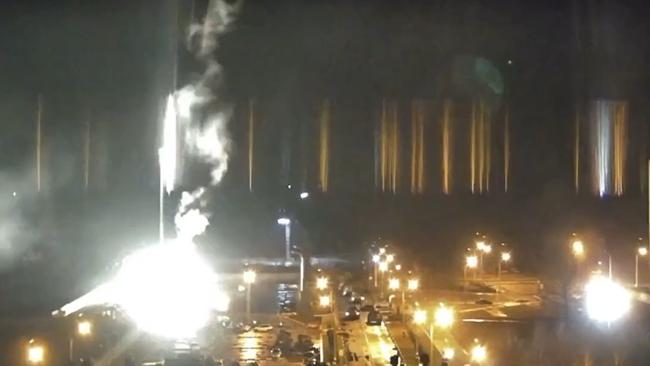
The Kremlin readout of the call said Mr Putin told the French leader that Russia would achieve its objectives in Ukraine “no matter what” and that the war was “going according to plan”.
Head of the military administration of the Zaporizhzhia region, Oleksandr Starukh, posted on Facebook that a training building and a laboratory had been affected by the fire.
He said an evacuation plan was not activated because radiation levels had not spiked, although it remained a live option.
Monash University associate professor of international relations and nuclear politics expert Maria Rublee said if damage had been worse and reactors melted down, the result would have been worse than Chernobyl.
“Reactors need cooling or they have a meltdown and if you have a fire in the area reactors are, then that is going to potentially stop the connection to the electricity grid. This absolutely could have been a significant nuclear disaster,” she said. “In Chernobyl just one reactor melted down. There are six reactors at (Zaporizhzhia).”
“I don’t know if Russia was trying to target the plant. It would be crazy if they were. It is more likely a mistake, mistakes happen in war.
“But it’s not over. As long as they continue the invasion and indiscriminately shelling, there is the threat of a significant nuclear event.”
Mr Zelensky earlier rejected any suggestions the fire could have been an accident.
“These are tanks equipped with thermal imagers, so they know where they are shooting,” he said.
Australian National University’s acting head of the Strategic and Defence Studies Centre, Stephan Fruhling, said while the situation was dangerous it would not result in a “Chernobyl situation” because the technology and safeguards were more advanced.
“The reactor itself is not of the same design as Chernobyl and it’s easier to safely shut down,” Professor Fruhling said. “The intent was not to destroy, but to control the Ukrainian electricity supply.”
While noting it was more likely Russia was targeting Ukrainian forces near the power plant rather than the plant itself, Griffith University professor Andrew O’Neil said “you can’t rule out” Russia deliberately attacking the facility: “I certainly don’t think Vladimir Putin cares what the state of Ukraine is going to be. Would Russia deliberately target a nuclear power plant? You can’t rule it out.”
NATO chief Jens Stoltenberg decried Russia’s “recklessness” over the shelling of the plant, and demanded Moscow stop the war against its neighbour.
“Overnight we have also seen reports about the attack against the nuclear power plant. This just demonstrates the recklessness of this war and the importance of ending it and the importance of Russia withdrawing all its troops and engaging good faith in diplomatic efforts,” Stoltenberg said.
Additional Reporting: Joe Kelly; AFP


